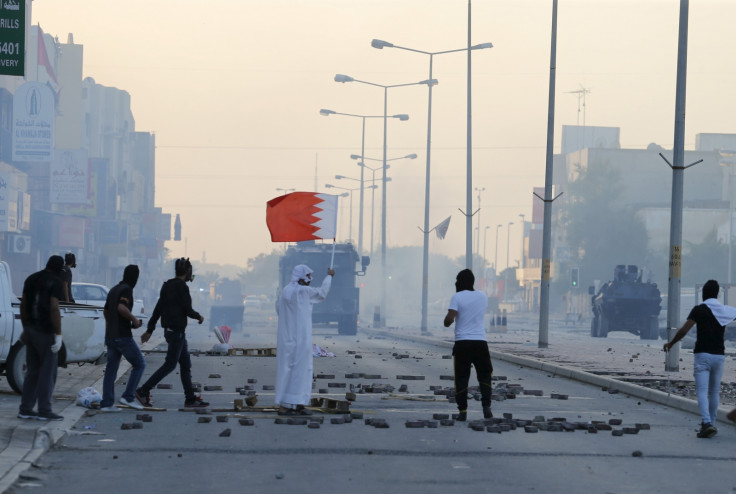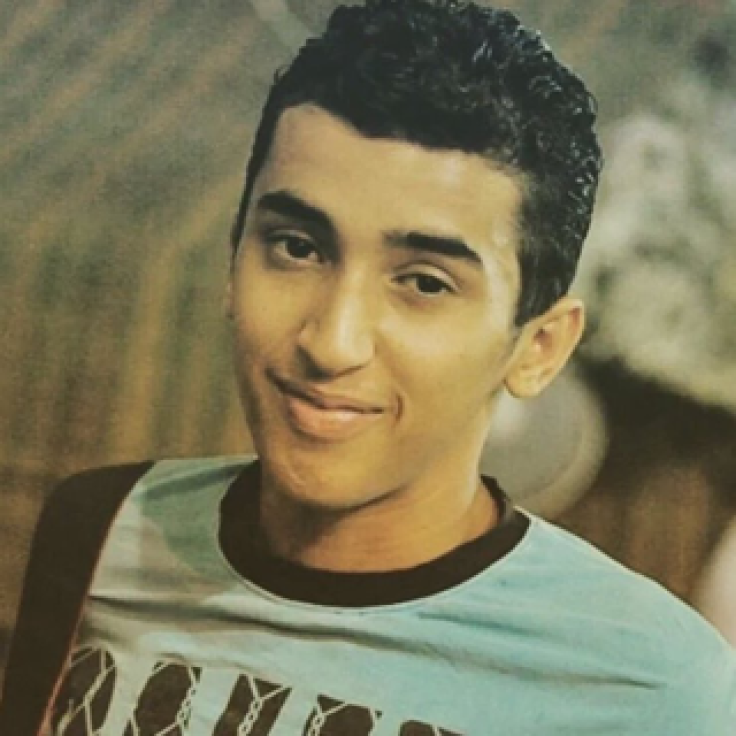Britain urged to act as two face execution in Bahrain
UK government has been criticised for its links with the Bahraini Sunni monarchy.

Bahrain could be poised to execute two prisoners who claim their confessions were extracted through torture.
Mohammed Ramadan and Husain Moosa were sentenced to death in 2014 for their alleged involvement in a bomb attack that killed a police officer, but supporters say they were falsely accused and confessed under duress.
Human rights organisations fear that the two men could be put to death in the coming days following the execution of three prisoners on Sunday (16 January), the first in Bahrain since 2010.
The men, Ali al-Singace, Abbas al-Samea, and Sami Mushaima, were allegedly tortured to force a confession in the same police station as the current death row inmates.
Activists have called on Britain to suspend its support for the Bahraini criminal justice system to avoid UK complicity in further human rights violations in Bahrain, a wealthy island state in Persian Gulf and a key British ally in the Middle East.
Bahrain, which is ruled by a Sunni monarchy, has led a major government crackdown against its Shia majority in the five years since protests erupted in Manama during the Arab Spring.
British foreign secretary Boris Johnson said in response to the executions that the UK is "firmly opposed to the death penalty", and that he has "raised the issue with the Bahraini government".
But anti-death penalty campaign group Reprieve described Johnson's response as "woefully inadequate". The charity has sent a letter to UK Prime Minster Theresa May calling for the government to "immediately suspend its involvement with all actors within the Bahraini criminal justice system and Ministry of Interior".
Reprieve and other organisations have repeatedly called attention to the link between human rights abuses and the multiple UK-trained institutions in Bahrain.
Human Rights Watch and the Bahrain Institute for Rights and Democracy were among other organisations to make similar appeals.

The UK has spent more than £5 million in Bahrain since pro-democracy protests rocked the kingdom in 2011. Last Friday (13 January), it emerged that the controversial aid programme, overseen by the Foreign & Commonwealth Office (FCO), is being bolstered by a further £2m this year.
Reprieve says that Britain's funding and training of police officers, prosecutors, judges, prison guards and oversight investigatory bodies in Bahrain has not lessened human rights abuses in the country.
Maya Foa, director of the death penalty team at Reprieve, told IBTimes UK: "Reprieve and other organisations have repeatedly called attention to the link between human rights abuses and the multiple UK-trained institutions in Bahrain. It is disappointing that there has not been a change of position by the UK Foreign Office."
As reported in the Observer, documents obtained by Reprieve reveal that Her Majesty's Inspectorate of Prisons helped prepare inspections of custody facilities in Bahrain in 2014, including the notorious police station where the prisoners were allegedly tortured.
The subsequent inspection report by the Bahraini Prisoners and Detainees Rights Commission failed to mention high-profile allegations of torture, including those of death row inmate Ramadan.

Ramadan's torture allegations were also ignored for more than two years by the Ombudsman for the Ministry of Interior, a body receiving FCO-funded training from UK state-owned company Northern Ireland Cooperation Overseas (NI-CO), Reprieve claims.
His case has been passed onto another NI-CO-trained watchdog, Bahrain's Special Investigations Unit, which previously ruled that one of the executed men, al-Samea, lied about his torture allegations.
Britain is the biggest obstacle in preventing international scrutiny of Bahrain's human rights abuses, because it is playing a leading role in whitewashing Bahrain's crimes.
Reprieve's Foa said the British-backed oversight mechanisms "refused to investigate or acknowledge the systemic and brutal torture of prisoners leading to coerced confessions", and that she was "seriously concerned" that they will fail Ramadan.
Supporters of Ramadan, a father-of-three, say his arrest was a politically-motivated retaliation for his participation in pro-democracy marches. He was deprived of legal counsel in a trial based on evidence obtained under prolonged torture.
Sayed Alwadaei, director of advocacy at the Bahrain Institute for Rights and Democracy, said that the FCO deeming Bahrain's torture watchdogs as "independent" is evidence that the UK is "misleading the international community".
"Britain is the biggest obstacle in preventing international scrutiny of Bahrain's human rights abuses, because it is playing a leading role in whitewashing Bahrain's crimes," Alwadaei said.

The UN High Commissioner for Human Rights said in a statement that he was "appalled" at Sunday's executions, and that the way the trials were conducted "raises serious doubts whether the accused were provided with the right to fair trial".
Agnes Callamard, the UN special rapporteur on extrajudicial executions, described the events as "extrajudicial killings".
Reprieve's Foa noted a "prioritisation of trade over human rights" by the UK government. Last year, the UK intensified its engagement with Bahrain, with visits to the oil-rich nation by Prince Charles, Theresa May and Boris Johnson.
Addressing the Gulf Cooperation Council in December, May said the UK was "determined to continue to be your partner of choice as you embed international norms and see through the reforms which are so essential for all of your people".
It remains to be seen whether the UK government will take any measures to prevent further capital punishment in Bahrain. In the meantime, Ramadan and Moosa live in fear of imminent execution.
An FCO spokesman told IBTimes UK: "The UK government is aware of the challenges which remain in Bahrain, but it is not good enough to merely criticise other countries from the sidelines.
"Only by working with the government of Bahrain are we able to bring about the changes we would like to see in the country. We will continue to raise concerns about human rights in Bahrain whenever we have them."
The Embassy of the Kingdom of Bahrain in London could not be reached for comments.
© Copyright IBTimes 2024. All rights reserved.





